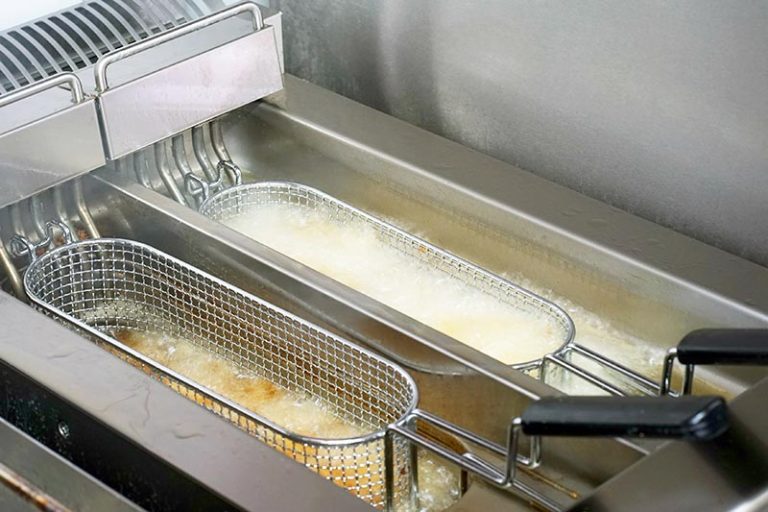Common Mistakes in Used Cooking Oil Management and How to Avoid Them
The High Cost of Common Mistakes
Managing used cooking oil may seem straightforward, but even small errors can lead to significant consequences. One of the most frequent mistakes is improper storage, where oil is left in unsealed containers or placed in unsuitable areas. This often results in spills or contamination, both of which can harm the environment and attract fines.
Another prevalent error is failing to partner with certified oil disposal vendors. Uncertified handlers might engage in illegal dumping practices, leaving your business vulnerable to severe penalties. Many restaurants also fall short on maintaining proper documentation of their oil recycling practices, a critical requirement for passing inspections and audits.
These missteps not only impact compliance but can also damage your reputation. Today’s eco-conscious customers expect businesses to handle their waste responsibly, and any deviation can tarnish trust in your brand.
Improper Storage: The Root of Many Problems
Storage errors are among the most avoidable mistakes in oil management. When used oil is stored in open or poorly sealed containers, it can attract pests, create unpleasant odors, and lead to contamination. Leaks and spills further compound the issue, potentially causing environmental harm and requiring costly cleanup efforts.
The solution lies in investing in sealed, leak-proof containers specifically designed for used oil. These containers should be stored in a designated area away from high-traffic zones to minimize the risk of accidental spills. Regular inspections of storage areas can help identify and address potential issues before they escalate.
The Risk of Uncertified Vendors
Choosing the wrong vendor for oil disposal can lead to serious repercussions. Uncertified handlers may cut corners, engaging in illegal dumping or failing to recycle oil properly. These actions not only violate environmental regulations but also reflect poorly on your business if traced back to you.
To avoid this, always verify that your disposal vendor is certified and compliant with local and federal guidelines. Certified vendors provide peace of mind by ensuring that your oil is recycled or disposed of responsibly. Many also offer detailed compliance reports, which can be invaluable during audits. Building a partnership with a reputable vendor is a key step in safeguarding your business from unnecessary risks.
Documentation Gaps and How to Fill Them
Even when oil is handled and stored correctly, a lack of proper documentation can create compliance challenges. Regulatory bodies often require detailed records of oil volumes, pickup schedules, and recycling processes. Failing to maintain these records leaves businesses unprepared for inspections and audits, increasing the likelihood of penalties.
Implementing a documentation system is essential for avoiding these pitfalls. Digital tools, such as apps provided by some recycling vendors, make it easy to log and track every aspect of your oil management process. These systems provide centralized access to compliance records, simplifying the audit process and ensuring that you’re always prepared.
The Importance of Staff Training
Staff errors are another common source of issues in oil management. Employees who lack proper training may mishandle oil, leading to contamination, spills, or even safety hazards. Without a clear understanding of best practices, mistakes are almost inevitable.
Training programs are critical for ensuring consistent, compliant practices across your team. Hands-on sessions that cover proper handling, storage, and disposal techniques equip staff with the skills they need to manage oil responsibly. Regular refreshers help reinforce these lessons and keep everyone aligned with the latest regulations.
Proactive Solutions for Avoiding Mistakes
The best way to avoid these common mistakes is to take a proactive approach to oil management. Start by auditing your current practices to identify vulnerabilities in storage, vendor selection, and documentation. Address these gaps by investing in proper storage solutions, partnering with certified vendors, and implementing robust record-keeping systems.
Equally important is fostering a culture of accountability within your team. Empower staff through training and make compliance a shared responsibility. When everyone understands the stakes and the benefits of proper oil management, mistakes become far less likely.
Setting Your Business Up for Success
Mistakes in used cooking oil management can be costly, but they’re also entirely avoidable with the right approach. By addressing common pitfalls—such as improper storage, uncertified vendors, and documentation gaps—you can protect your business from compliance risks and build a reputation for responsible practices.
Longview Environmental encourages restaurant owners to prioritize proactive oil management. With the right tools, partnerships, and training, your business can navigate compliance effortlessly while supporting sustainability and operational efficiency.








